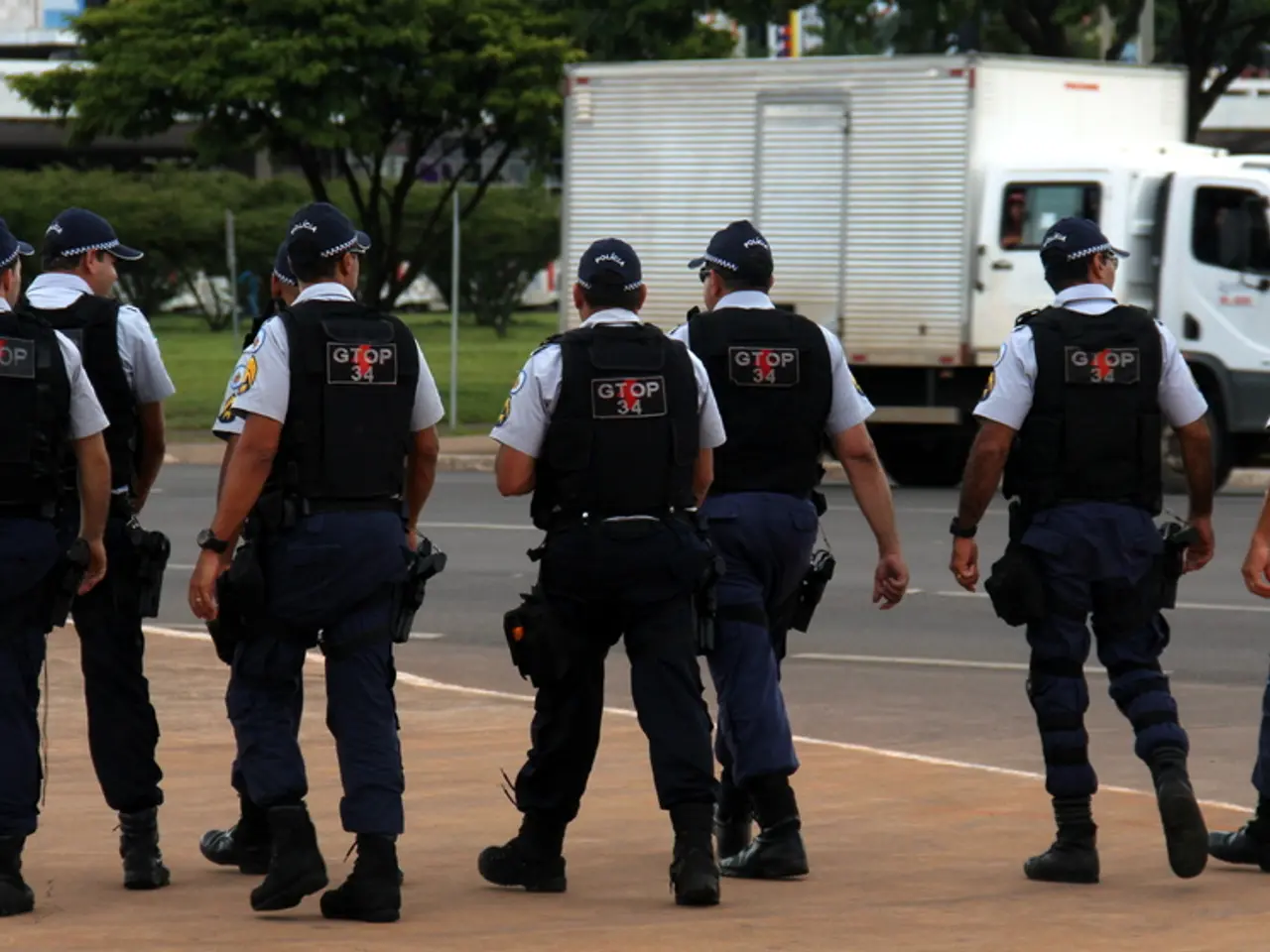Methods Employed in Police Training to Equip Officers for Their Role
Preparing the Next Generation of Law Enforcement: A Comprehensive Approach to Training
In the pursuit of maintaining public safety, law enforcement training plays a crucial role in shaping the minds and skills of aspiring officers. The training process is designed to instill foundational principles of law, ethics, and professionalism, while also equipping officers with practical skills and knowledge to serve their communities effectively.
A key focus of law enforcement training is the development of foundational knowledge in criminal justice and law. Officers are taught criminal law, ethics, police administration, and leadership, which underpin their understanding of their legal authority and responsibilities. This knowledge forms the bedrock upon which other aspects of their training are built.
Practical skills development is another essential component of law enforcement training. Officers learn essential skills such as conflict resolution, communication, critical thinking, problem-solving, and empathy. These skills enable them to effectively interact with the public, manage disputes, and investigate crimes.
Physical fitness and tactical training are also integral parts of the training process. Physical endurance tests ensure readiness for the physical demands of the job. Tactical training may include use of force, firearms qualification, defensive driving, and arrest techniques to keep both officers and the public safe.
Safety protocols and risk management are critical considerations in law enforcement training. Training Safety Officer (TSO) programs incorporate planning, safety briefings, site inspections, and after-action reviews to minimize risks during training and field operations.
Specialized crisis response and emotional resilience training is another important aspect of law enforcement training. Programs like SHIELD train officers to handle specific challenges such as overdose response, managing emotional reactions, building trust with individuals in crisis, and referring them to appropriate health services instead of simply arresting them. This enhances officers' ability to address complex social issues compassionately and effectively.
Ongoing professional development is emphasized throughout the training process. Officers are encouraged to engage in reputation management, ethical behavior, education, networking, and lifelong learning to prepare them for career challenges and future responsibilities.
Recruits also learn to use non-lethal tools like TASERs, OC spray, and collapsible batons. Defensive tactics training teaches officers techniques to protect themselves and others while minimizing the use of force. Officers are trained to assess situations quickly, communicate effectively, and employ non-lethal tactics to defuse tense encounters.
Law enforcement training programs include physical conditioning regimens tailored to enhance officers' strength, agility, and endurance. Recruits also learn firearms skills, including basic handling, aiming, and responding to multiple attackers.
Investing in robust law enforcement training is essential for building a skilled and resilient police force that can effectively serve and protect communities. Law enforcement training equips law enforcement professionals with the necessary skills, knowledge, and mindset to effectively serve and protect their communities, fostering positive interactions with community members, resolving conflicts peacefully, and addressing underlying social issues that contribute to crime. By prioritizing comprehensive training, we can ensure that our officers are legally knowledgeable, physically prepared, emotionally resilient, skilled in communication and problem-solving, and trained to operate safely and ethically, thereby enabling them to maintain public safety effectively.
In the context of a comprehensive approach to training, law enforcement professionals are encouraged to engage in ongoing personal growth and learning, including education and self-development. This lifelong learning encompasses ethical behavior, reputation management, networking, and continuous skill development in areas such as conflict resolution, communication, critical thinking, and problem-solving, which align with the goals of personal growth and learning.
Moreover, the training process incorporates learning about non-lethal tools and defensive tactics, teaching officers to use these tools wisely and employ minimally invasive methods to address conflicts, thereby demonstrating a focus on learning and skills acquisition for safe and effective policing.




